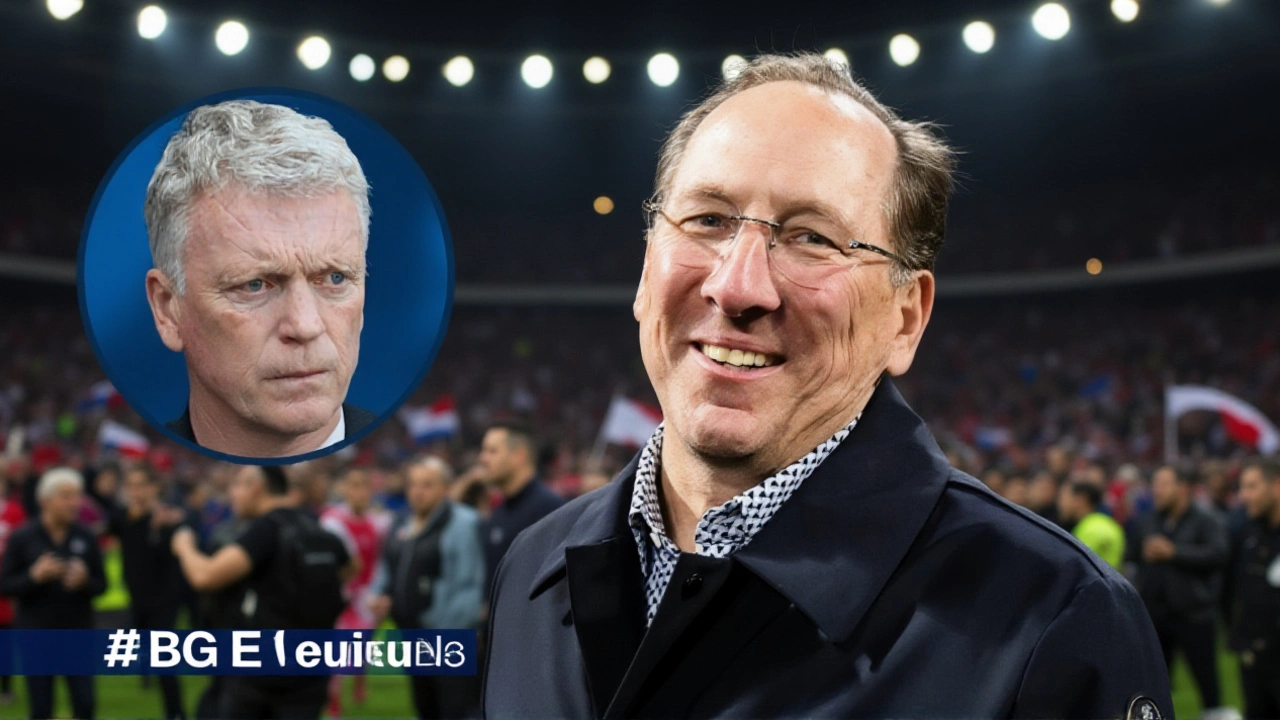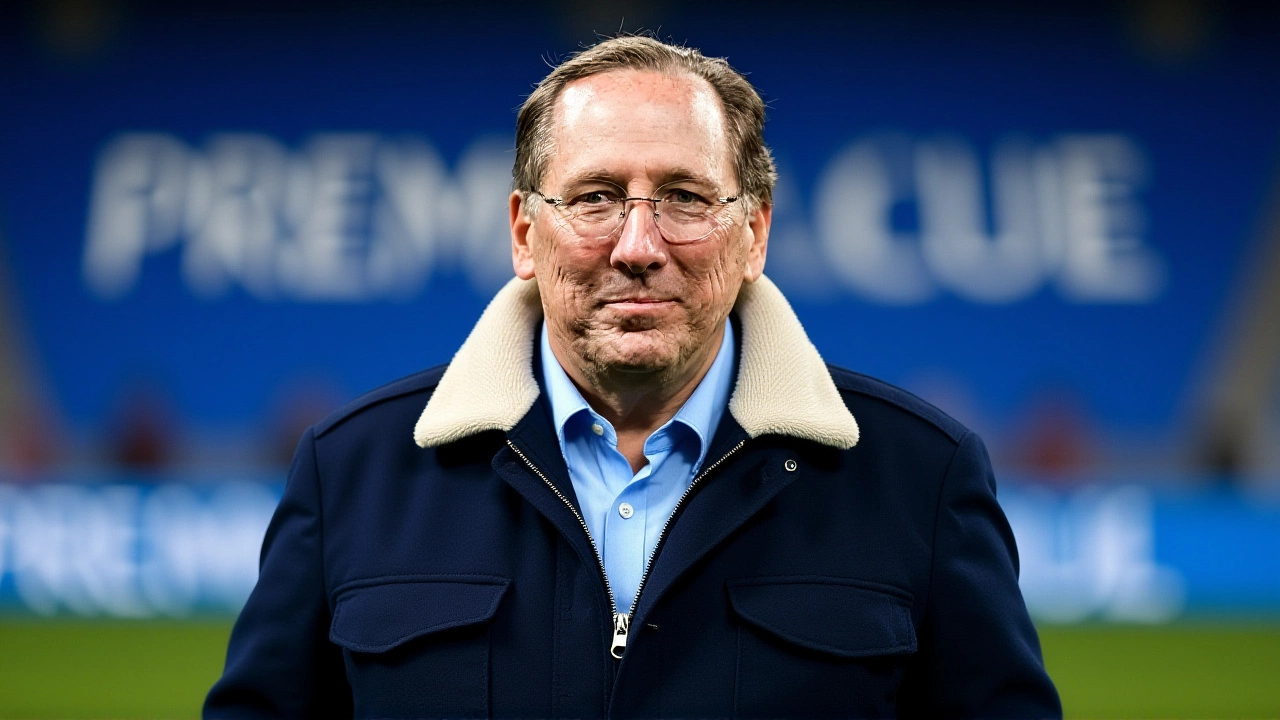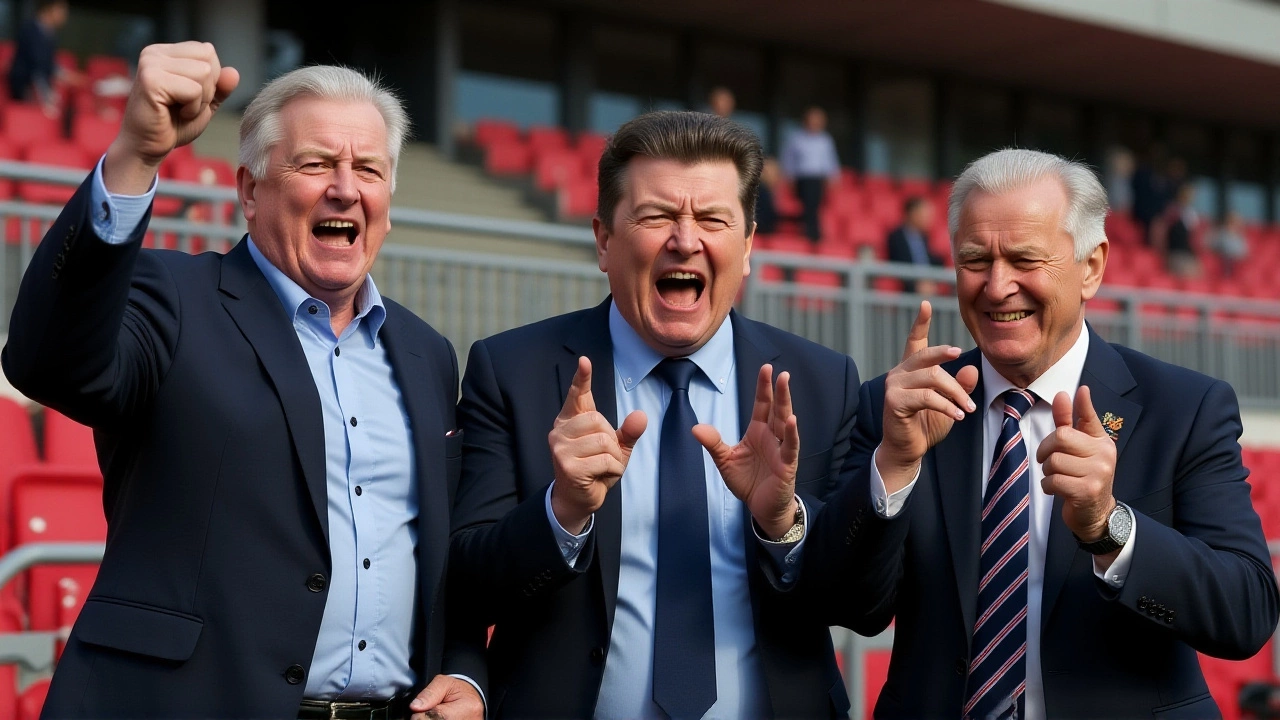Crystal Palace will play in the UEFA Conference League this season — not because they lost, but because they won too well. The club, fresh off lifting the FA Cup by beating Manchester City 1-0 in May 2025, was stripped of their Europa League spot by UEFA over ownership rules. On August 11, 2025, the Court of Arbitration for Sport (CAS) in Lausanne confirmed the decision. The Eagles, despite their trophy and their Community Shield win over Liverpool just a day earlier, will now begin their first-ever European campaign in the third-tier competition. It’s a twist no one saw coming — and one that’s left fans furious.
How a Cup Win Led to a Demotion
Winning the FA Cup was supposed to be Crystal Palace’s golden ticket. After a dramatic 2-2 (5-4 on penalties) victory over Liverpool in the FA Community Shield at Wembley, the club was riding high. Goalkeeper Dean Henderson had just saved two spot-kicks. Forward Jean-Philippe Mateta was the hero of the season, scoring the club’s first-ever European goal in a 1-0 win over Fredrikstad FK on August 21. But none of that mattered to UEFA. The issue? John Textor. The American billionaire owns both Crystal Palace and Olympique Lyonnais, the French club based in Lyon. UEFA’s rules, written to prevent conflicts of interest, prohibit any individual from exercising control or influence over two clubs competing in the same European competition. As of March 1, 2025, UEFA determined Textor had enough sway over both teams to violate Article 5.1 of its Club Licensing and Financial Fair Play Regulations. Palace didn’t appeal the decision at first — they thought the FA Cup win trumped everything. They were wrong.The CAS Hearing: A 10-Hour Battle
Palace chairman Steve Parish flew to Lausanne on August 8, 2025, for a 10-hour hearing before three CAS judges. He argued that Palace’s FA Cup victory was earned on the pitch, not through corporate maneuvering. He pointed out that Textor’s involvement with Lyon had no bearing on Palace’s recruitment, tactics, or results. “We didn’t sign a single player because of Lyon,” Parish told reporters afterward. “We didn’t share coaching staff. We didn’t coordinate transfers. This isn’t about fairness — it’s about paperwork.” The CAS panel, however, didn’t buy it. Their ruling, delivered at 9:50 PM UK time on August 11, was blunt: UEFA’s interpretation of the rules was “legally sound.” The panel didn’t question the legitimacy of Palace’s cup win — only the structure of ownership. In effect, they ruled that winning a domestic cup doesn’t override UEFA’s ownership statutes. The club responded with a statement: “Sporting merit is rendered meaningless.”Who Benefits? Who Pays?
The fallout is messy. Nottingham Forest — who finished 7th in the Premier League — is expected to inherit Palace’s Europa League spot. They’ll join Aston Villa, who qualified via sixth place. That’s a win for the Midlands, but a blow to the principle of rewarding cup winners. If a team can win the FA Cup and still be pushed out of Europe for reasons unrelated to their performance, what’s the point of the competition? The Conference League, launched in 2021, was designed to give smaller clubs a shot at Europe. But Palace isn’t small. They finished 12th in the Premier League last season. They have a 120-year history. They play in front of 45,000 fans every home game. Their European debut should’ve been in the Europa League — not as an afterthought in a tournament where many teams are still fighting for survival in domestic leagues.
The Bigger Picture: Ownership Rules in Crisis
This isn’t an isolated case. In recent years, multi-club ownership has exploded. City Football Group owns Manchester City, New York City FC, Melbourne City, and more. Red Bull controls Leipzig, Salzburg, and New York Red Bulls. Even in England, the Premier League has quietly allowed clubs like Brentford and Bournemouth to be tied to U.S.-based investment groups with global portfolios. UEFA’s rules were written for the 2000s, not the era of billionaire conglomerates. Palace’s case exposes a flaw: the rules punish success, not collusion. There’s no evidence Textor manipulated matches, shared players, or influenced referees. He simply owns two clubs. And now, one of them — the one that won a cup — gets punished. The logic feels inverted. As one UEFA insider told The Athletic, “We’re enforcing a rule that was meant to stop cheating… against a club that didn’t cheat.”What’s Next for Crystal Palace?
The club says it will continue to seek legal advice — possibly challenging the CAS ruling in Swiss civil courts. But for now, they’ve accepted the reality. Their European journey begins on August 21, 2025, against Fredrikstad. Mateta’s goal was historic. The fans will be there — 12,000 of them, traveling to Norway, singing loud, proud, and defiant. This season, Palace will play in four competitions: the Premier League, FA Cup, EFL Cup, and now the Conference League. It’s their 13th straight top-flight season. And for the first time ever, they’re in Europe. But the trophy they won won’t be the one that got them there. That’s the bitter truth.
Legacy of a Rule
This decision won’t just affect Palace. It sends a message to every club that wins a domestic cup: your achievement can be undone by a shareholder agreement. It could deter clubs from investing in cup runs if the reward might be revoked. It could make fans question whether the system values sport — or spreadsheets. For now, Crystal Palace will play on. They’ve lost the battle, but not the spirit. And maybe, just maybe, they’ll win the Conference League. If they do, they’ll qualify for next year’s Europa League. The irony? That’s the competition they were supposed to be in all along.Frequently Asked Questions
Why was Crystal Palace demoted despite winning the FA Cup?
UEFA’s rules prohibit any individual from controlling or influencing two clubs competing in the same European competition. American owner John Textor holds significant influence over both Crystal Palace and Olympique Lyonnais as of March 1, 2025. Even though Palace earned their Europa League spot by winning the FA Cup, UEFA deemed this a conflict of interest under Article 5.1 of its licensing regulations, leading to their demotion to the Conference League.
Who gets Crystal Palace’s Europa League spot?
Nottingham Forest, who finished seventh in the 2024-25 Premier League, is expected to take Palace’s vacated spot in the Europa League. This follows UEFA’s standard protocol: when a cup winner is disqualified from a European competition, the next highest-ranked eligible team in the domestic league receives their place — provided they haven’t already qualified for a higher-tier competition.
What’s the difference between the Europa League and the Conference League?
The Europa League is Europe’s second-tier club competition, while the Conference League is the third tier, introduced in 2021. The Conference League features teams from lower-ranked domestic leagues and cup winners who don’t qualify for higher competitions. Winners of the Conference League earn automatic entry into the following season’s Europa League group stage — the same reward Palace would have received had they stayed in the Europa League.
Is this the first time Crystal Palace has played in Europe?
Yes. Despite being founded in 1905 and spending 13 consecutive seasons in the Premier League, Crystal Palace had never qualified for any European competition prior to the 2025-26 season. Their FA Cup win in May 2025 was their first pathway to Europe — making their demotion and subsequent Conference League entry a historic, albeit controversial, milestone.
What’s the impact on Crystal Palace’s players and staff?
The demotion affects recruitment, sponsorship, and morale. Players like Jean-Philippe Mateta and Dean Henderson now face a tougher path to European exposure, and the club’s commercial value may dip slightly without Europa League revenue. However, the team remains intact, and the Conference League still offers Champions League qualification via the Europa League pathway — keeping the dream alive. The club’s departure of long-serving captain Joel Ward also marks the end of an era, with Nathaniel Clyne now the last link to their Championship days.
Will Crystal Palace challenge the CAS ruling further?
Yes. While the club has accepted the immediate outcome and will compete in the Conference League, they’ve confirmed they’re seeking further legal advice. Potential avenues include appealing to the Swiss Federal Tribunal on procedural grounds or pushing for a broader review of UEFA’s multi-club ownership rules. Many legal experts believe this case could become a landmark challenge to the fairness and modern relevance of UEFA’s regulations.
